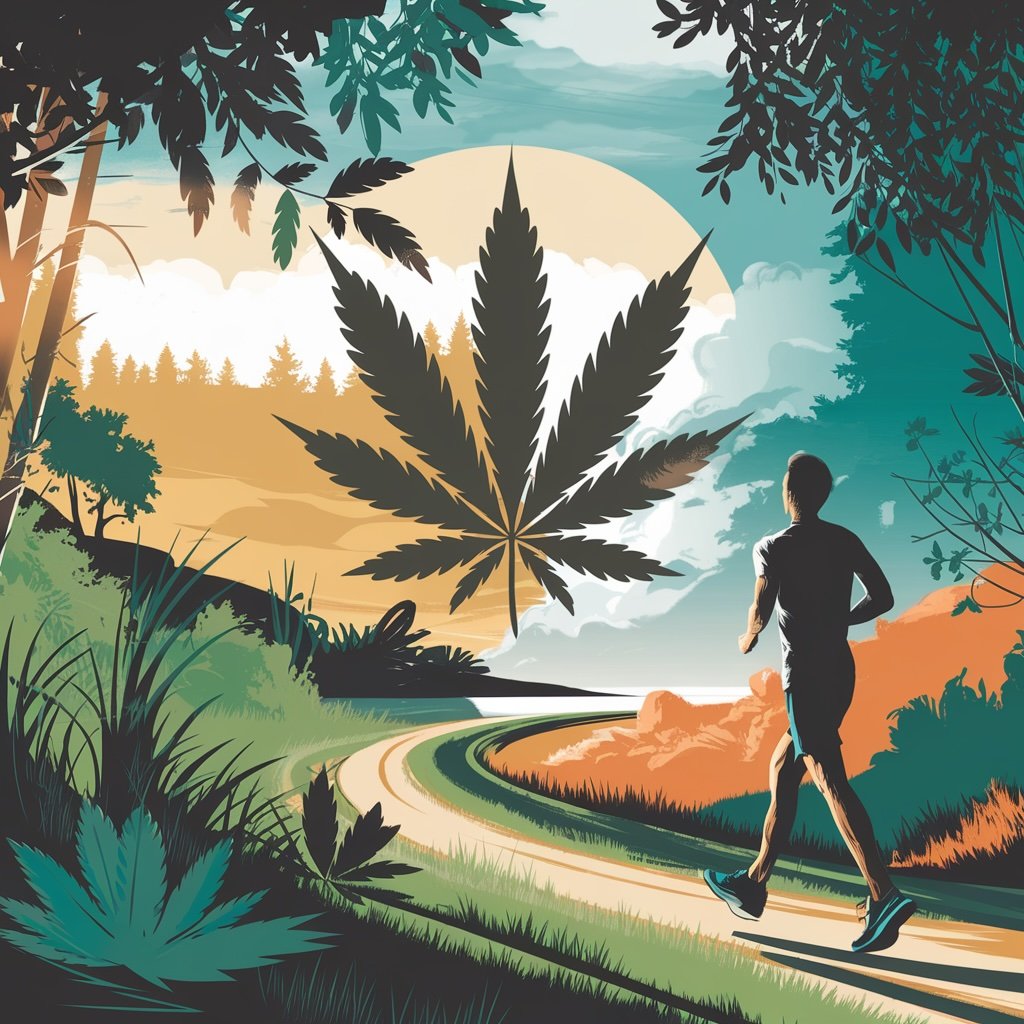The Surprising Link Between Cannabis Use and Physical Activity
Cannabis use may enhance physical activity by boosting motivation and enjoyment, shattering the outdated "lazy stoner" stereotype
With cannabis legalization spreading rapidly across the globe, the social stigma surrounding its use has been slowly dissolving. This cultural shift has spurred researchers to examine cannabis through a scientific lens, uncovering insights that challenge outdated stereotypes.
One such area of interest is the relationship between cannabis use and physical activity—a topic that seeks to unravel the deeply ingrained notion of the “lazy stoner.”
A federally funded study was conducted to analyze how cannabis use affects physical activity, offering critical data that could reshape how cannabis users are perceived.
This research not only sheds light on behavioral patterns but also emphasizes the importance of moving beyond caricatures to better understand cannabis use in the real world.
Literature Review
Previous research on cannabis and physical activity has painted a more nuanced picture than many might expect. Some studies suggest that cannabis users are more physically active than their non-using counterparts, though findings vary.
While results like these contradict the lazy stoner stereotype, they also highlight the need for further examination to understand the underlying connection between cannabinoids and overall health.
A key tool in this field of study is Ecological Momentary Assessment (EMA). This innovative methodology captures real-time data by prompting participants to log their behavior and experiences via smartphone-based surveys.
Unlike traditional survey methods that rely on retrospective reporting, EMA allows researchers to track substance use and physical activity as they occur, yielding more accurate and reliable results.
Methodology
This groundbreaking study utilized a smartphone-based EMA approach to collect data from participants representing diverse demographics. The inclusion criteria ensured a representative sample, accounting for a variety of cannabis use patterns and activity levels.
Participants were prompted multiple times per day to answer questions about their cannabis use, physical activity, and other substances, such as alcohol and cigarettes.
Researchers employed robust statistical methods to analyze the associations between these variables, carefully controlling for confounding factors like age, sex, and baseline health conditions.
Findings
The results offered a compelling challenge to the lazy stoner trope. On days when participants used cannabis, they reported higher levels of physical activity compared to non-use days.
This was particularly notable among those who engaged in exercise for recreational enjoyment, suggesting that cannabis may enhance the psychological rewards of physical activity.
However, research has also uncovered an increase in alcohol consumption and cigarette smoking on cannabis use days, highlighting the complex interplay between different substances.
These associations may reflect a shared psychological reward mechanism that could influence substance use behaviors.
Interestingly, participants reported heightened feelings of enjoyment and motivation during physical activity on cannabis use days. This aligns with theories that cannabis could amplify the perceived rewards of exercise, potentially encouraging users to move more and engage in physical activities they might otherwise avoid.
Behavioral Patterns and Challenges
These findings offer significant implications for dismantling outdated stereotypes about cannabis users. The observed increase in physical activity on cannabis use days directly contradicts the assumption that cannabis induces lethargy.
Instead, it suggests that cannabis could act as a psychological enhancer, boosting motivation and enjoyment during exercise.
Comparing these results with previous research, this study strengthens the argument for a more balanced understanding of cannabis users’ behaviors. While inconsistencies exist in the literature, they may stem from differences in methodologies, participant demographics, or regional variations in cannabis laws and attitudes.
Of course, limitations must be acknowledged. Self-reported data is inherently subject to bias, and the sample size may not fully capture the diversity of cannabis users. These limitations underscore the need for continued research to validate and expand upon these findings.
Implications for Health Professionals
The use of real-time tracking tools like EMA offers exciting opportunities for health professionals to develop tailored interventions. For instance, just-in-time adaptive strategies could use real-time data to promote healthy behaviors, such as encouraging physical activity or reducing risky substance use.
Policymakers also have much to consider. With cannabis legalization expanding, understanding its nuanced effects on public health is critical. By funding research that explores these dynamics, policymakers can craft regulations that maximize public health benefits while minimizing potential harms.
This study reinforces the importance of challenging reductive stereotypes about cannabis use, particularly the notion of the lazy stoner. The observed increase in physical activity among cannabis users highlights the complexity of human behavior and the potential for cannabis to play a unique role in enhancing the psychological rewards of exercise.
Future research should focus on larger, more diverse samples and incorporate objective measures of physical activity to strengthen these findings. By continuing to explore the intersection of cannabis use and health behaviors, we can build a more accurate and empathetic understanding of cannabis users in an increasingly legalized world.
The Marijuana Doctor is your premier destination for seamless medical marijuana licensing. Our compassionate team guides you with expertise, ensuring a smooth process. Discover the therapeutic benefits in a supportive environment that prioritizes your well-being. Join a community championing alternative healing methods for a healthier life. Follow us on Instagram!

